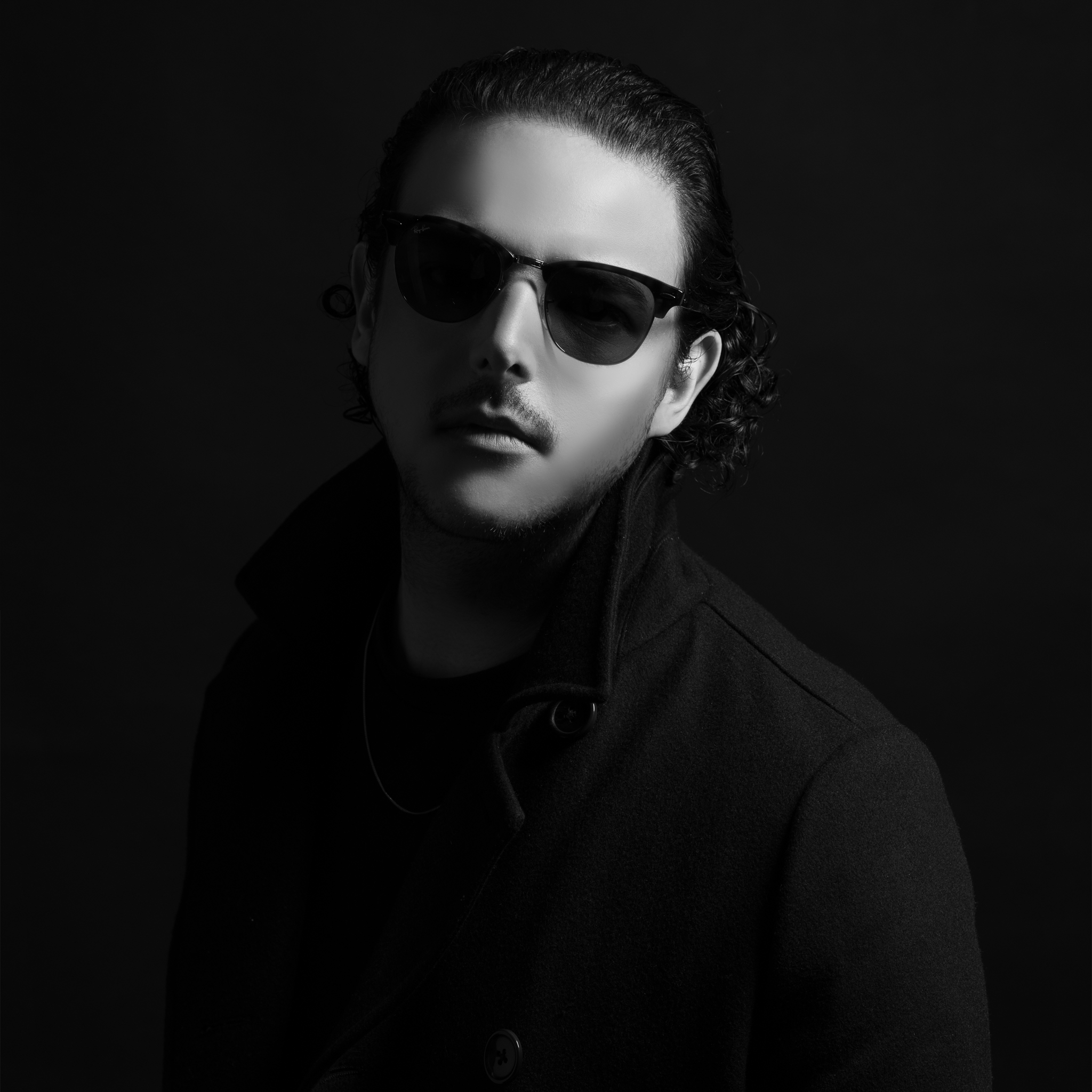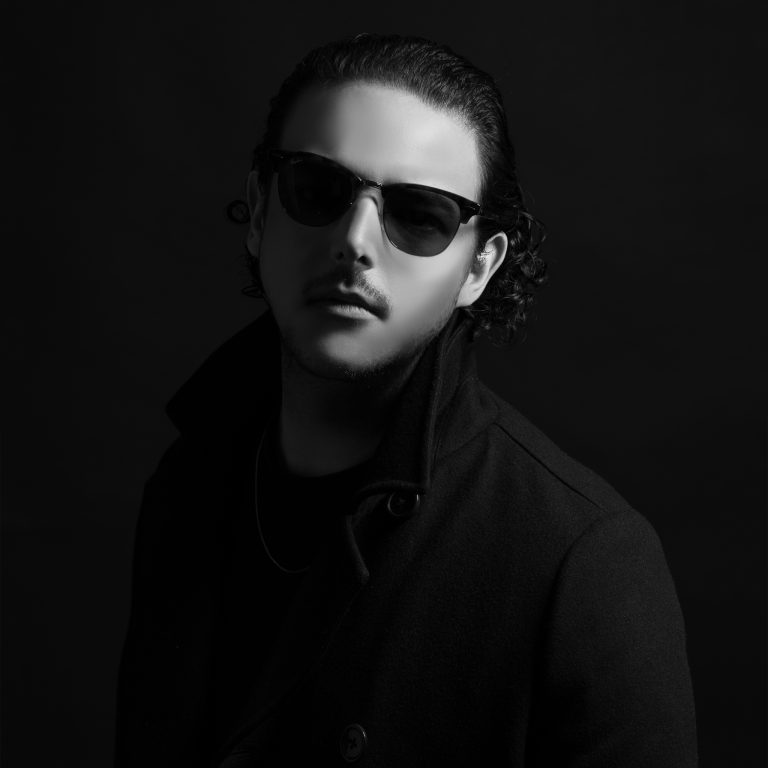
Toronto-Based Folk Artist Ian Arden Takes On A Delicate Hope In “Nadia”
It’s always interesting that in some languages, similar words can have different meanings. And Toronto folk artist Ian Arden speaks to two meanings in his new song “Nadia.”
In Russian, Nadia means “hope,” and in Arabic, Nadia means “delicate.” The character of Nadia in his new song, and accompanying music video, represents both of those words while describing someone who has been suffering for too long.
“The music video and the song depict a beautiful, innocent young maiden. As I am the ‘Toronto troubadour’ she represents the muse that has guided me throughout my life,” says Arden of the “Nadia” video.
Arden started to focus inspiration for his music on mental health after he noticed how people around him were struggling. “Nadia” is a song that sounds like the 20th Century but remains current and impactful with its slow yearning and captivating chorus with a polished and modern folk sound.
With a focus on mental health, Arden speaks to the many things he’s learned, such as there’s light at the end of the tunnel for those having a hard time.
“The song taught me to not be silent about mental health and to speak my truth. I take away from it the knowledge that I can firmly stand for what I believe,” says Arden.
“Nadia” is the first single off the EP Songs for Rebecca, which continues to be centred around stories of trying to live in the modern world and those struggles. Arden’s first release has a list of guest appearances from local artists and blends pop and folk with songs that have the power to uplift anyone.
Songs for Rebecca is the first album by the Montreal-born troubadour. After moving to Toronto, Arden’s father made him recite lyrics to songs from artists like Leonard Cohen, Paul Simon, and Bob Dylan to help him learn English and overcome his stammer. Although the process was unscientific and maybe a little scarring, those influences can be heard throughout the album in its poetic lyrics and progressive folk elements.
Watch the video for “Nadia” below and learn more about Ian Arden via our mini-interview.
Care to introduce yourself?
I’m Ian. I’m French-Canadian and Moroccan. I’m a songwriter from Toronto, Ontario.
My father worked for the United Nations, and my mother’s a judge. When your father helped save the world and your mother is one of Canada’s preeminent authorities on immigration law, it really changes your perspective.
I’m really grateful for what my parents taught me. If I meet somebody named Shiva, I know all about the Hindu deity they’re named after.
If somebody is Burmese, I know the country of their ancestors is now called Myanmar.
They knew I was a shy kid, and so they equipped me with enough knowledge to feel at ease in almost any situation.
It’s not always easy being a child of two words. I am often perceived as an immigrant by my fellow French-Canadians and have been painfully called “whitewashed” by some who feel I neglect my Moroccan side too much.
But I also recognize I am the beneficiary of certain privileges, namely male privilege by virtue of my voice and biology, as well as white privilege by virtue of my name and legacy.
I know women struggle a lot in this industry. My album “Songs for Rebecca” is a celebration of some of the most incredible female talent Canada has to offer.
Regina Bianca sings with me on “Wind,” Johnny Rouge sings with me on “Moon Spirit,” Ink Sticks & Stones sings with me on “Nadia.” Nicole Farrugia is prominently featured in the visual media for my release.
I want everything I do to be a celebration of the beauty and diversity of the human spirit.
Tell us about the process of writing “Nadia.”
Nadia was written in one night. I think the song was written because I was repressing a lot of my emotions.
I was dealing with some PTSD, and when someone close to me began suffering, I just lost it. I completely broke down. I was not only consoling “Nadia,” but myself.
Writing that song was an instrumental part of my mental health journey. I’m so happy people are enjoying it.
I have a Martin guitar I wrote all of these songs on. I call it “Martin the Warrior.” I feel like Martin the Warrior was passed down to me from another era, and that I was just following his dictation.
In other words, Nadia already felt pre-written. I simply revealed it.
Musically, “Nadia” has an indelible Moroccan influence. This was not done consciously but emerged organically. “Nadia” is also a very popular name in Morocco. It means “delicate,” which is an appropriate name for the song’s character.
My mother is descended from a clan of ancient Moroccan mystics known as the Shawafa. Their witchcraft centers around allowing yourself to be possessed by spirits and channeling their energy to obtain wisdom and revelations.
Nadia literally wrote itself. The physical sensations I experienced while writing it are identical to the ones reported by the Shawafa whilst entranced by demonic energy.
So much for me being “whitewashed.”
What’s it like being a musician in Toronto?
Toronto is a beautiful city. I got to record in some of the best recording studios in the world, which is a luxury afforded to Toronto musicians.
I recorded at Kuhl Muzik. Gary is one of the nicest guys, and that studio became such a safe place for me. There were times I would ask Gary to turn out the lights in the studio, and we would just sit there in the dark and revel in the sound.
Kuhl Muzik is located at 401 Richmond. I would traverse down the halls and corridors of that building and feel like I was entering another world. There’s magic in that studio. You can hear it in my recordings.
One of the best compliments I ever received for these songs was from local musician Phil Hood. He said the songs reminded him of a soundtrack to a movie that doesn’t exist that he somehow remembers seeing as a small child.
Who could ask for a better review?
Gary is really an exceptional audio professional, and Kuhl Muzik is the place to go in Toronto if you want to record music professionally.
That said, Toronto has some scams. Just because a mustachioed man on Instagram claims to be a “music industry guru” does not mean you should listen.
Another engineer/producer I want to shout out is Jay Crafton. He’s in Toronto, and he is an absolute wizard. We are working on some new stuff together, and Jay has been one of the most supportive people I’ve ever encountered.
Jay has gone above and beyond in helping me. “Songs for Rebecca” would not exist without him.
Justin McHugh, my co-producer, was there from the beginning. These songs were iPhone voice notes, and he turned them into fully produced songs. Justin McHugh is one of the hardest-working musicians in Toronto. If you want anything music related in this city, he is the “go-to” person.
Being a musician in Toronto is just the best. My new album, Songs for Rebecca could not have been written without me living in this city. It’s a perfect album to listen to while taking the TTC, or while you’re waiting for your friends somewhere.
I’ve always considered Toronto to be so much more than a city. It’s almost like an ancient Greek Titan. It’s a living, breathing entity. I always felt like I was part of some ancient society whose responsibility was watching over Toronto and protecting it from the forces of chaos.
I love taking long walks in Toronto. When it’s nice out, I will walk along Yonge Street from downtown to Steeles Avenue. That’s the entire length of the city!
I love attending concerts at places like The Rivoli and The Horseshoe Tavern.
I recently saw my friend and collaborator Jesse Daly at The Tranzac in the Annex. Both inside the venue and outside of it, there were dozens of cool bohemians.
It’s such a groovy scene.
My music is the soundtrack to life in Toronto. I really hope Torontonians enjoy it. I am, after all, the “Toronto troubadour.”
Who was the first Canadian artist to blow you away?
Leonard Cohen. This story is difficult for me to tell, but here it goes.
My father taught me everything, but when it came to the English language, it was the one thing he couldn’t teach me. And so he decided to outsource it to his record collection.
Night after night, he would force me to listen to a Leonard Cohen song until it was memorized.
I remember one night he asked me to recite “The Stranger Song,” and I just couldn’t recite the entire thing. It was too long. And so he got aggressive. It was scary. But I couldn’t cry. Papa NEVER wanted to see me cry.
And so I was eventually able to recite “The Stranger Song” in its entirety, albeit with a single tear down my cheek.
My father’s favourite Leonard Cohen song was “Story of Isaac.” My dad always loved the biblical Isaac story, and he loved making me memorize passages from his King James Bible.
The story of Isaac perfectly sums up my father. Abraham and his wife Sarah could not conceive a child, so God blessed them with a child.
One day, God demanded Abraham kill Isaac, and Abraham obeyed. God stopped Abraham before Isaac could be killed. It was a test to see how dedicated Abraham was to God.
Papa loved telling that story.
He could be brutal to me in ways that truly terrified me, but in his own way, he did it all to serve a higher purpose. Even if it was in spite of himself.
Or, as Leonard Cohen beautifully sang
“When I lay upon a mountain
And my father’s hand was trembling
With the beauty of the word”
When Leonard Cohen died, a part of me died. The final song on the final album of Leonard Cohen’s lifetime ends with “I wish there was a treaty. I WISH there was a treaty…between your love…and mine.”
My father was a diplomat. Treaties are kind of his thing. You can understand why that line would cut deep for me.
In the 1990s, Leonard Cohen spent years in a Buddhist monastery. He was ordained as a Buddhist monk. From 2001 onward, Leonard Cohen’s “post-monastic” period became his most vital period.
His work during this period is the most insightful collection of songs I have ever heard. These songs are my life partner. They reveal the secrets of the soul.
If you’re a Leonard Cohen fan, I would be honoured if you would listen to my album “Songs for Rebecca,” which is also the name of an unreleased Leonard Cohen album.
I am firmly rooted in his musical lineage. If Leonard Cohen was Moses, I would be honoured to be thought of as Joshua.
You’ve been making music for a while now. What’s one piece of advice you can offer to those starting out?
Follow your dreams. Without dreamers, this world would be a very dreary place.
I am so fortunate to be connected with so many incredible creative types on my Instagram. Feel free to follow me @ianardensongs because I love connecting with musicians.
“Just do your thing. You’ll be king.” – Bob Dylan


